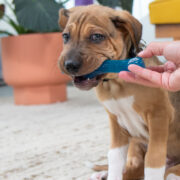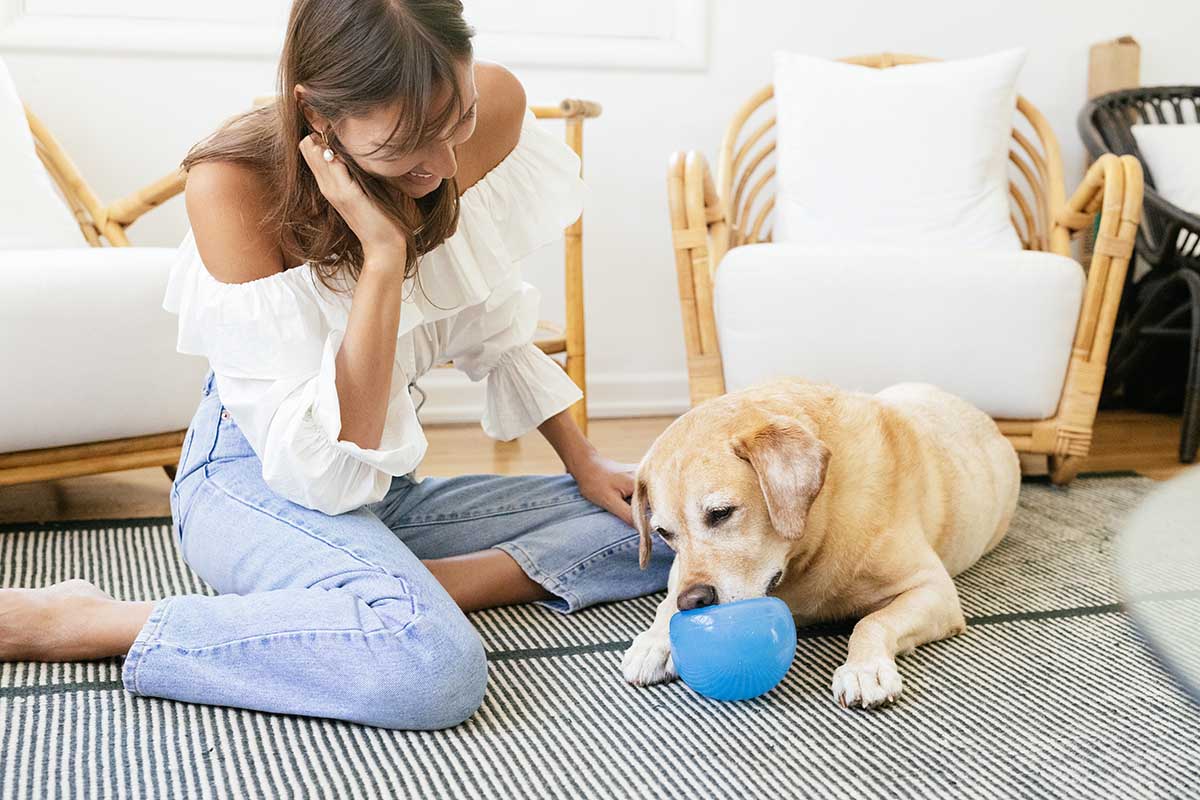Is whipped cream bad for dogs? No, whipped cream is not bad for most dogs. Just like with humans, not all dogs can digest dairy products with ease. If your dog is lactose intolerant, then it’s not a good idea to get that puppuccino on your next drive-thru Starbucks run.
If your dog can digest dairy without any problems, then that Starbucks puppuccino secret menu item is safe to give as an occasional treat.
And the puppuccino cost? Free-ninety-nine!
Tip: Some veterinarians list whipped cream as an effective vessel for tricking your pup into taking pills. Just make sure to read the ingredient label on the cool whip before feeding it to your pooch. Don’t give them any human food that is labeled as “sugar-free” or has xylitol in it.
How do I know if my dog is lactose intolerant?
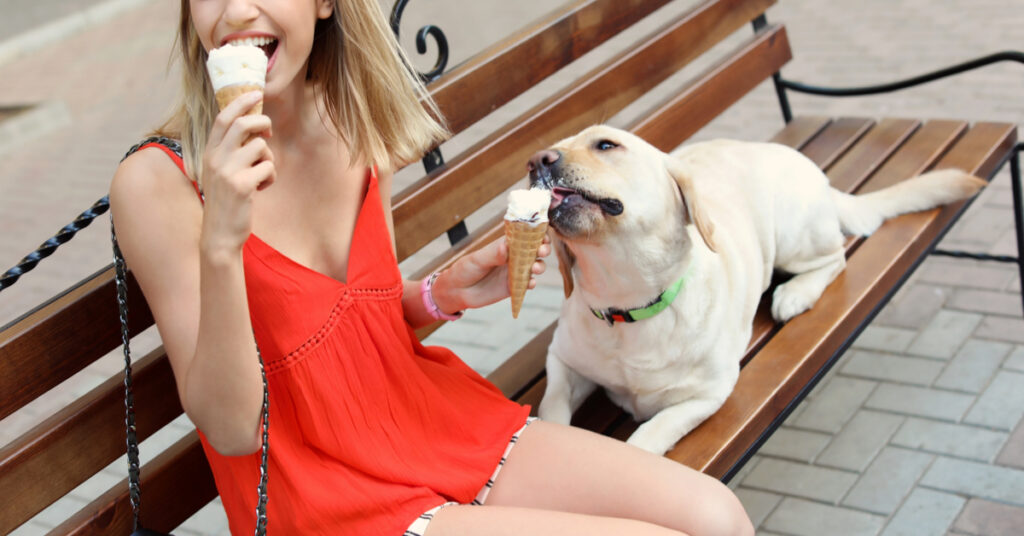
According to Cummings Veterinary Medical Center at Tufts University, the most common reported food allergies in dogs are chicken, beef, dairy, and eggs (fun fact: grain and gluten allergies are actually quite rare).
Signs of lactose intolerance in dogs include:
- diarrhea
- vomiting
- bloating
- stomach pain
- excessive gas
Like with humans, dogs that are lactose intolerant are unable to produce their own lactase, a natural enzyme that works to break down lactose in order to make it digestible.
Just because a dog has digestive issues or is lactose intolerant, this doesn’t mean that all dairy is off-limits. This is because not all dairy contains lactose. Cheddar cheese, for example, has nearly zero grams of lactose and can be safely eaten by most pups without any side effects.
Dairy and your dog’s diet
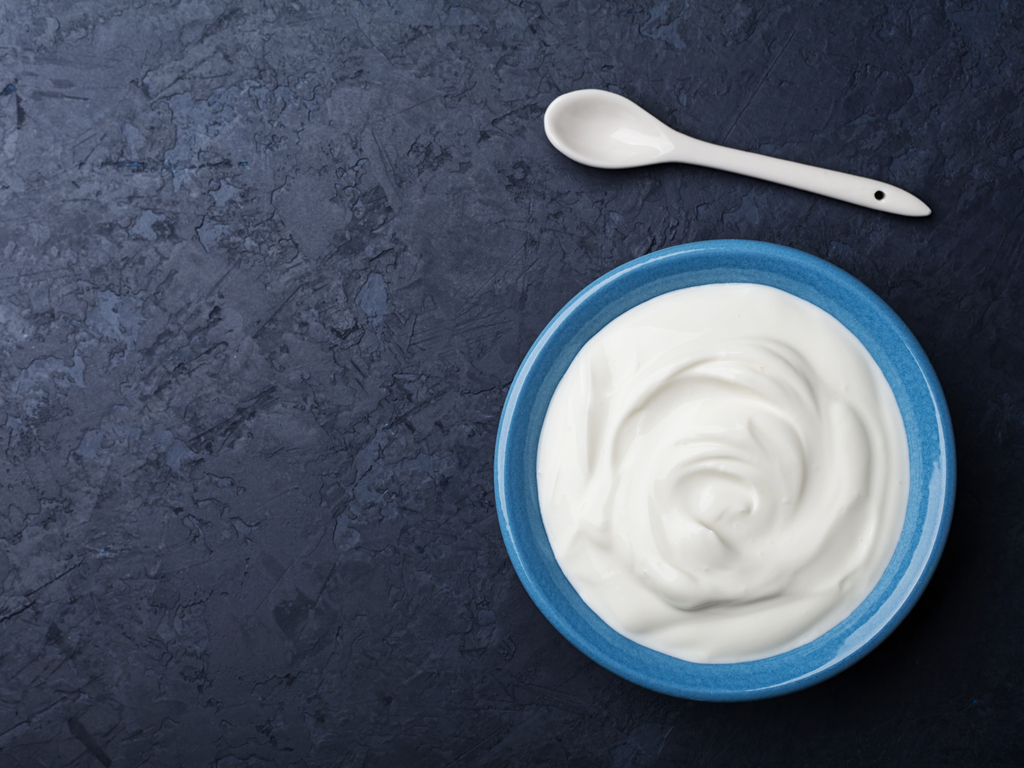
If you choose to share a sweet treat like a whipped cream dessert topping with your dog, don’t forget the 10% rule. Dog treats should make up no more than 10% of your dog’s daily calories. Regular dog food should be your dog’s primary source of nutrients.
Not all dairy products have very much nutritional value that contributes to your dog’s health. However, an item like plain Greek yogurt does have health benefits and is great for boosting good gut bacteria in the digestive system. Greek yogurt is naturally low in lactose and is an excellent source of probiotics for both pet owners and dogs.
Should you choose to share something like Greek yogurt with your furry friend, it is essential that you read the ingredients on the label. Some yogurts (especially flavored yogurts) can have high sugar content, so if your dog is diabetic this may not be good for his blood sugar level.
You also need to be on the lookout for xylitol, also known as birch sugar. This is sugar alcohol extracted from birch bark that is commonly used as a sugar substitute in many human foods labeled as “sugar-free.” This includes some yogurt, ice cream, pudding, etc. Xylitol is highly toxic to dogs.
Saturated fat and the generally high fat content from heavy cream is another thing to watch out for. But as long as you stick to the 10% rule, you can prevent obesity or other serious conditions like pancreatitis.
DIY FroYo
For a dog-friendly, healthy(ish) sweet treat for your best friend, try making peanut butter frozen yogurt.
For this special treat, you’ll need:
- Peanut butter
- Plain Greek yogurt
- A blender
- Optional: banana
Directions: Blend Greek yogurt and peanut butter (feel free to add banana or preservative-free, all-natural Wholesome Pride banana chips as a topping, if you like). Pour into a mold, small cup, or dog puzzle, and freeze until set. It’s that easy!
Whipped Treats for Lactose-Intolerant Doggos
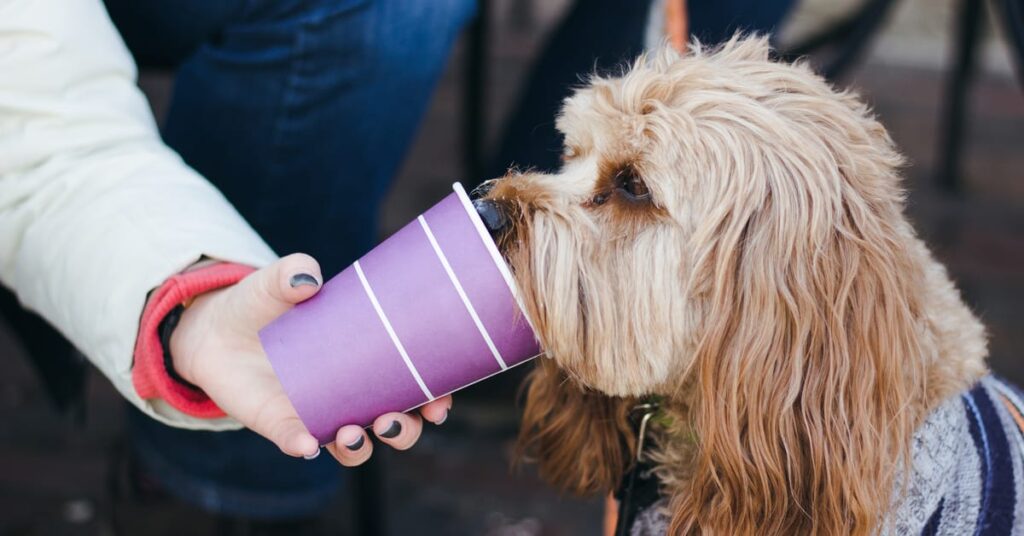
Not every doggy can enjoy a pup cup from their favorite barista at their local coffee shop. Luckily, dog owners can make their very own coconut whipped cream at home with a can of coconut milk! Coconut whipped cream is safe for a lactose-intolerant dog because it is dairy-free.
If your canine has health issues when it comes to dairy, you can rest easy knowing a homemade dollop of coconut whipped cream won’t mess up his tummy. And if that doesn’t work out, there’s always peanut butter!
Final Thoughts
If you are unsure of sharing sugary treats with your pupper, it’s always a good idea to just not give it to them until you get veterinary advice. Weight gain, heart disease, and bloating aren’t worth a little sugar rush from a treat out of a Starbucks cup. A healthy dog is a happy dog!
Dog lovers: Remember that caffeine is dangerous to your pup. Don’t share anything caffeinated with your dog like an espresso cup, a latte with vanilla syrup, frappuccino, cappuccino, etc. Stick to puppucinos.
